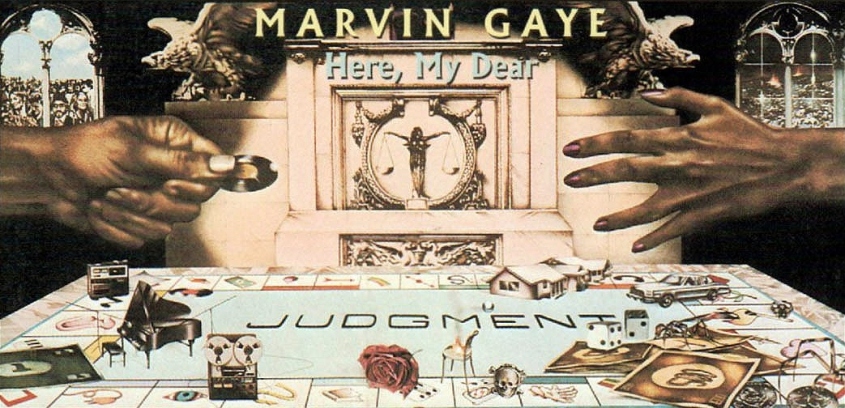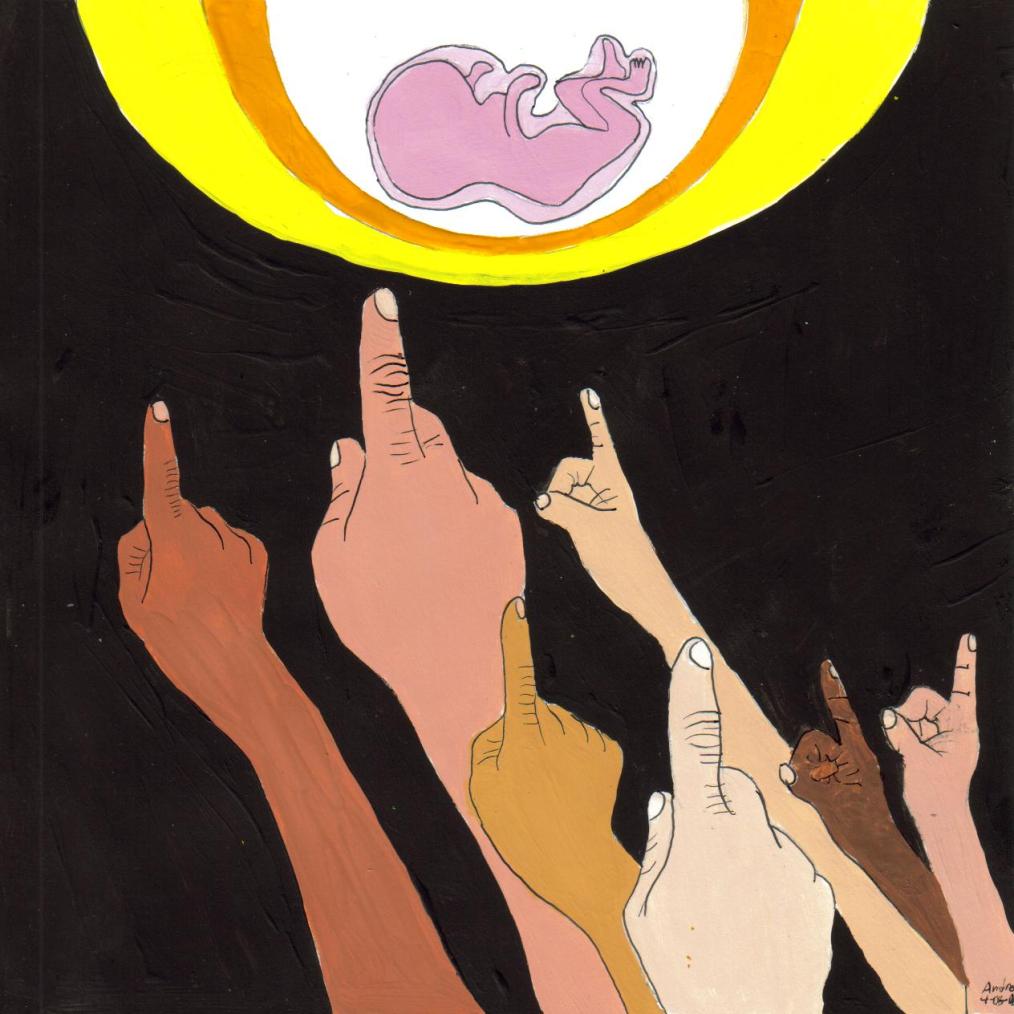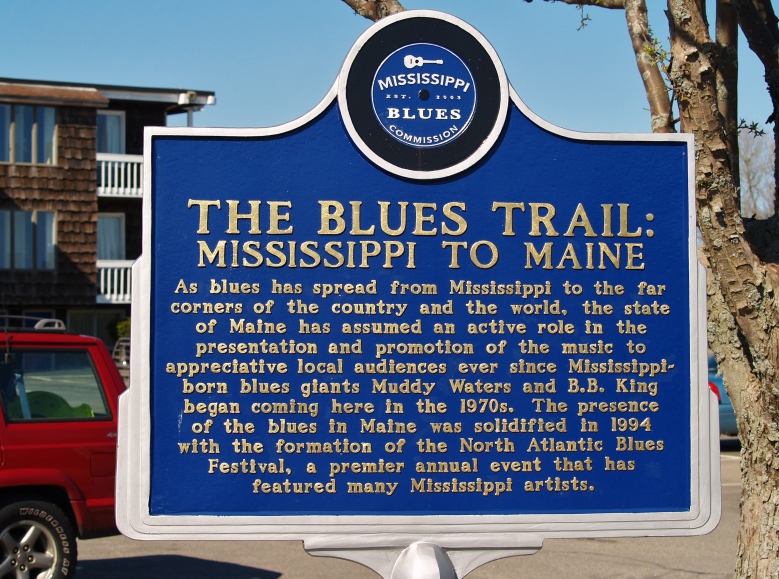Home » Posts tagged 'Blues'
Tag Archives: Blues
HAPPY BIRTHDAY TO THE RHYTHMIC NUCLEUS!!!
 Yesterday I was informed here that it was the one year anniversary of The Rhythmic Nucleus here on WordPress. The first reaction that came to mind was to question whether or not it was egocentrically correct to celebrate something that I created. Of course it is. The idea of the Rhythmic Nucleus as a narrative concept was one of the longest gestating creative ideas that I’ve ever had. Most of the time creative acts tended to arrive rather randomly. The idea of this came from more than half a decade of discussion with two men I am going to give the most credit for helping me create this. One of these men is my own father,the very first person who opened up dialog’s and discussions with me about the subject of music.
Yesterday I was informed here that it was the one year anniversary of The Rhythmic Nucleus here on WordPress. The first reaction that came to mind was to question whether or not it was egocentrically correct to celebrate something that I created. Of course it is. The idea of the Rhythmic Nucleus as a narrative concept was one of the longest gestating creative ideas that I’ve ever had. Most of the time creative acts tended to arrive rather randomly. The idea of this came from more than half a decade of discussion with two men I am going to give the most credit for helping me create this. One of these men is my own father,the very first person who opened up dialog’s and discussions with me about the subject of music.
Few father and son relationships are perfect. But since nine times out of ten the topic of music brings my father and I together,he is the first person I want to thank for inspiring this. The idea of the blog itself derived from conversations with another person I often mention here. Someone just as directly responsible for the subject matter of this blog as my father. Henrique Hopkins of Oakland,California has helped to metaphorically help create a funk nucleus chain reaction as it were-giving me first hand information from one of the key sources of the music that inspired this blog. To my father and Henrique I want to thank you both for your enthusiastic help,advice and caring.
One of the serendipitous things about this article is that it is the 90th one made on this blog. So that’s also reason to celebrate. Several months ago I came to the conclusion that in terms of the writing here,I was starting to run out of road. So this is the perfect time to announce that,following my 100th article on this blog,posts will no longer be posted on a weekly basis. While there was a brief summer vacation this year,articles after this will be posted more sporadically. Another reason for this has to do with the fact that,although this blog has proven more popular than I expected,it isn’t quite receiving the levels of readership that would necessitate the struggle to come up with new ideas for writing here-rather than letting inspiration flow as it has been thus far.
To conclude this article,it was again Henrique who inspired the question I am about to answer. Several days ago while he discussed this blog he asked the seemingly simple question: was I writing this blog to satisfy myself or others? Funny how obvious questions have such obscure answers sometimes. In this case,the answer to anyone else asking this question is both of those reasons define this blog. It has been very satisfying to present my own ideas. Yet at the same time it is often far more satisfying when others receive something from it as well. It’s the synergy of giving and receiving. A similar synergy as is the combination of jazz,blues,African and Latin rhythmic ideas that came together to create funk music in the first place. So a very happy anniversary for this blog. And to those readers from the United States,a very happy Thanksgiving tomorrow as well!
Understanding Funk: Do You Really Love What You Feel?
Most people one knows throughout life continue forward via inspiration. That term is often miss-classified in the contemporary human mind as shorthand for religious or spiritual inspiration. Today I am going to be talking about musical inspiration. There is an ideology to it. And its not of the sort that asks that one condemns another through hatred or anything of that kind. A lot of people also look upon “being different” as trying to avoid “isms” in life. But…well,frankly that just doesn’t hold up when your trying to apply it. Adding “ism” to a phrase assumes self confidence. Creates a defined sense of purpose. So in this spirit,my own sense of inspiration comes from futurism. The futurism of being a Star Trek and science fiction admirer. And the futurism that comes from certain types of music. As readers of this blog are well aware,the key to understanding what in music appeals to me is soul. Soul that is within a strong groove and,as Miles Davis’s mother once advised him,playing something you can hum-a strong melody. Its really not a bad way to look at most things in life itself,actually.
I’ve been hesitant in the last few weeks to write anything new here because I feel that blogs of this sort are not being represented well by the online audience at the moment. It seems that for some reason the music media has been overly focused on non other than Miley Cyrus. As far as I am concerned,she is another in a succession of teenage recording artists who are over promoted and are presenting themselves as being somehow unique when doing nothing the least bit daring or original. So I say in mild jest that for the first time writing in this blog I feel as if two entire sentences have been wasted on a group of music stars who,to put it mildly,have still not found their own genuinely creative voice yet. So this article will not contain celebrity gossip about the latest teen idol. Never done that,and not about to start. What I’m going to talk about comes down to the modern day equivalent of the blues-a musical base found in most contemporary pop of all genres if you peel back the layers. And that would be funk. Funk comes from the blues. And its found it’s own voice. But not only do many people not notice,but are frankly rife with misconceptions of what funk music is. So even if I am not remotely close to all knowing on the topic,I’ll do my best can with with what I’ve got to help set the record straight.
Due to a recent conversation I had and viewing commentary all over the internet the first misconception I’ve seen about funk music is the term “simplistic” and/or “uncomplicated”. The language that many people use in reference to funk has a passive/aggressive quality-almost as if to say the music presents itself as simple because it is made by simpletons. Funk is actually a great way to explain that misconception as it applies to many aspects of life. Funk is music that’s built up. The bass and the drum are the core of the music. And everything is built up from the sense of rhythm provided from both instruments. As with the blues,the approach to the music changes all the time. This has already been discussed in my first post on this blog-its the core of what I write about. Yet most people are well aware it has become a much more superficial society,most notably in terms of people’s points of view. Somehow people have been trained,or trained themselves to perceive mainly what’s on the surface of something. Music is a good example in general. With the exception of 60’s era innovators such as The Beatles,Jimi Hendrix and Brian Wilson-who actually expanded the rhythmic/harmonic language of their respective musical art,it is 3 chord rock ‘n roll that is more literally a simplistic music.
Of course that leads into what’s probably let to funk’s strong musical invisibility: culturally based musical value judgement’s. Often times when someone refers to funk as simplistic,the conversation on the topic is being dismissed-not to be mentioned again. While writers such as Ricky Vincent and Nelson George have done an excellent job in literature defining funk/soul within a broader cultural context,their prose are deeply affected by this form of dismissal. And considering the struggle for recognition of anything at all Afrocentric,that is understandable. However its extremely easy to find someone who’ll rhapsodize with great adoration and worship about their love of punk and different alternative/indie folk based musics-admiring them,in fact for their simplicity and directness. If one looks at this double standard in a cultural context,an instant racial schism is created. It refers to the simplicity of Afrocentric music,or even Mexican and East Indian classical/folk music,as being worth less creatively than simplistic musical forms that derive from the European tradition of music. That’s why it’s so common for funk music to be appreciated almost as a retro novelty dance music,yet the same person will find even a stereotypical sounding country-western type folk song to be iconic and timeless creatively.
Little in this article actually moves too far beyond the discussions that my friend and often personal inspiration Henrique have been having online for years. That’s important though because those discussions bought out one little known fact: funk can be found everywhere if you understand it. Incidental music in adult films is often heavy funk,which of course leads to another misconception of funk as “porn music”. That’s not necessarily a bad thing however,since funk’s emphasis on rhythm is complimentary to human sexual impulses. Also in the teen pop I discussed earlier in the blog. Even though it was went to be geared solo as a marketing demographic,the basic musical groove of Britney Spears debut hit “Baby One More Time” is an attempt at funk. The slow dance beat,popping bass line on the accents and yes-Britney’s attempt at phrasing vocally like Sly Stone even at times are apparent for the radio listener who digs deep. It should be pointed out however that this is not by any means a funk song. Only the most obvious elements of the music are fleshed out so,at best is winds up being second/third rate “kiddie funk” to a degree. But again,its still very much in the groove-despite being instrumentally artificial and presenting by a more highly mediocre vocal talent than funk would normally have.
Putting a musical wrap onto all of this,I’d have to say that music lovers out there should understand one important thing. Having a mere history lesson on the major innovations of rock ‘n roll or the latest goings on of whatever teen idol is popular at the moment really doesn’t provide a well rounded understanding of what makes popular music function as it does. In the 1960’s it was well understood that the 12 bar electric blues was the basis for every major rock innovation of that era-from the Rolling Stones to Led Zeppelin. And that resulted in a renaissance for those artists who pioneered that blues sound such as BB King,John Lee Hooker,Howlin’ Wolf and Muddy Waters. The only major celebrity associated culturally with the rock music scene who has chosen to present unsung funk/soul artists in this manner is probably David Byrne. In the last few years the contemporary R&B community has again began to embrace the funk era,once dimmed to near invisibility,as a strong influence rather than various hip-hop styles. And hip-hop being inspired by funk,its a representation of the removal of a filter-and a clear field of view for the music. If this musical ethic continues to sway in this direction,I can see a time in the very near future where funk is as acknowledged as a musical base as the blues,its direct ancestor,was in the past.
The Coastal Maine Blues And How I Came To Fully Understand It
During the years I was growing up in Maine, it became clear after a time that my musical tastes had more of a broad minded cultural connectivity than most around me. Chocked it up to the way my father, the most heavily musically inclined of my parents, bought me up to understand music itself. Herbie Hancock,Kool & The Gang,The Beatles and Mozart all seemed to fit somehow on the same side. By the time I was in mid adolescence there was a revelation that separated my musical tastes from my father’s. It wasn’t hip-hop or heavy metal-two of the cliched musics producing the widest generation gap in that period. What it came down to is that I flat out couldn’t stand the blues. I was deeply immersed in the music and spirit of funk/soul/jazz-fusion at the time. The blues came off as music of the museum to me-something many of the musical festival goers and DJ’s in the area seemed to obsess on the way one would an antique car. I just didn’t see how it applied to musical and cultural futurism of any sort, and felt it represented subservience to a more depressive past time. Just a couple days ago something occurred that completed my change of that opinion.
I was taking a day trip with my family to the beautifully scenic coastal Maine city of Rockland. It has a wonderful blend of nautical New England life with this rather 60’s/70’s era downtown urban flavor. Every summer the city hosts the largest Blues Festival in the state. Its so enormous that people actually have to reserve a ticket a year in advance. Walking along the streets taking photos, my father pointed out the sign you see in this photo in front of the Trade Winds Motel. As you can see from the photo I took at his request, it tells some of the story of the blues in the state of Maine. But the back,which I also photographed is even more revealing. It spoke about how Mississippi Jimmie Rodgers referenced the Maine city of Portland as “just as sunny as Tennessee” in his “The Brakeman’s Blues”. Although the minstrel shows of George Washington Kemp that came through the state after the civil war didn’t make a huge impact,by the 70’s and 80’s Rockland’s Paul Benjamin began booking blues at local clubs and by 1989,the Maine Blues Society was formed in the city of Portland.
This rich history of the blues in Maine is something of which I had no awareness. I honestly thought that the interest in the music was based purely on the blues nostalgia following the tragic death of Stevie Ray Vaughn. Now I am a native of Maine and lived in the state my entire life. The sociopolitical atmosphere of this area is based deeply in hard physical labor, an early to bed/early to rise mentality with the phrase “you working hard or hardly working?” an extremely common phrase exchanged among a lot of the working class residents of the area of the state I live in. Most of these people simply want to live their lives and be left alone to do so. As Eric Clapton pointed out about the blues idiom, it always seemed to be “just one guy against the world”. Didn’t matter if it was John Lee Hooker, Howlin’ Wolf, Muddy Waters or J.B Lenoir. I have come to realize that a lot of Mainers probably first came to hear the blows because they probably thought of the music as reflecting their own working class struggles and woes. And as the blues began to evolve into a more festive environment such as that in Rockland, many of them learned how to dance their own blues away to this music they heard being played by some of the modern day greats-locally and otherwise, of the blues.
My own appreciation for the blues comes from my broader musical understanding of it. As with reggae, the blues melodic form seems rather limited sometimes when heard in its rawest state. Some of the common elements of the 12 bar chord sequence that defines the blues seemed a bit repetitive musically to me as I was listening to music during my youth more informed by jazz. Honestly I have to credit Quincy Jones as well as my father for helping me to understand how blues was part of the musical connectivity I admired. I used to get very annoyed at how musicians and critics in music documentaries used to sling around the blues as “the backbone of all contemporary music”. I just couldn’t hear it. What I didn’t realize was how through the development of jazz,the blues form was totally and rephrased to accommodate horns and singers. Hence even James Brown’s band,playing jazz with a “raw rhythm attitude” were firmly in the blues lexicon with their funk sound. At any rate, with establishments such as the excellent 4Point’s BBQ and Blues grill in Searsport Maine, the blues is here to stay. And though I still rather prefer the music expanded into other styles, I am a lot more glad than I was before that the blues is here.


